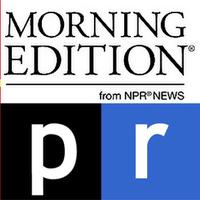Gov. Herbert On Why Utah Has Embraced Refugees Over The Years
RENEE MONTAGNE, HOST:
Among those wounded in the Brussels bombings last week were three Mormon missionaries from Utah. It's the sort of tragedy that can generate a backlash, stiffening attitudes and reshaping policies, not so in Utah. It's a red state. But its Republican governor, Gary Herbert, hasn't been swayed from taking in refugees from Syria and other Muslim countries. We reached Governor Herbert at his office in Salt Lake City. He explained why his state has had a long-standing embrace of refugees with plans to welcome hundreds more this year.
GARY HERBERT: We don't want to have terror imported to Utah. But we were just a little bit reluctant to use somebody's religion as the defining description of who can come into a state and who can come into our country and who cannot. Just saying, as a blanket, well, if you're a Muslim or if you're Catholic or if you're Mormon or if you're a Jew you can't come in is not, I think, the right way to go about it, at least as America. MONTAGNE: Does that have something to do with the history of Mormons?
HERBERT: I'm sure it has some. We have a sensitivity to the First Amendment rights of religion. And we have a history as a state that was founded because of exiled Mormons who were kicked out of other parts of the country and actually had one state put out what was called an exterminate order. You could kill Mormons just like you could kill deer. We even had a president, Rutherford B. Hayes, who said to Europe, please do not let any more Mormons migrate to America. So we have a history of knowing a little bit what that is like to be discriminated against because of your religion. And when people come to Utah, we welcome them. We have additional review over what the federal government's already done to make sure there's not something that's been overlooked. But then we want to make sure that they integrate. And we help them with jobs and skills and language. And then we make sure they have somebody that's always in touch with them, they can talk to if something happens, that they have somebody to have confidence in. We're trying to make sure we don't have the problem of anybody come here and become radicalized, as we see in many other states take place. MONTAGNE: Although, to what degree can you effectively screen an individual when their country of origin isn't really in a position to share information or hasn't kept a record on activities and whereabouts? How well can you screen those who come into your state?
HERBERT: Well, I don't know, Renee, if there's any perfect way to ensure that that's, you know, we don't have any terrorist event take place. If we think there's just one window, this refugee program, that where terrorists can come into the country, we are in fact naive because I think there's other bigger windows that are being taken more advantage of. We need to have a tall fence, but we also need to have a wide gate. So we have, in fact, an immigration program that is not broken as we see it's broken today. MONTAGNE: Are the people of Utah behind you in large numbers on welcoming refugees?
HERBERT: Yeah, I think they are. About 65, 66 percent of all the people in Utah are Mormon. The LDS Church just this past weekend, coincidentally, just put out a new program called, "I Was A Stranger," taking from the New Testament - Jesus I was a stranger, and you took me in - and talking about how we should in fact be a welcoming people, look for ways to help people who are less fortunate around the world. MONTAGNE: Well, interesting because your fellow Republican, Ted Cruz, won in Utah in the Republican caucuses there. He has called for a freeze on any new refugees from areas affected by al-Qaida and the Islamic State, which of course would be all Syrians. He has called for new powers of law enforcement to patrol Muslim neighborhoods. That's about as far away from your position as it's possible to get. What do you make of that?
HERBERT: Well, as a matter of choices, there probably is no perfect presidential candidate out there. I don't expect that he's going to be exactly in line with everything I believe, Senator Cruz. But I think he's in line with most things that Utah believe and actually does something about the illegal immigration problem, which I think is much more of a serious problem than those who come in through the refugee program. That being said, politics is politics. And I know that he's running against Donald Trump, and that's been kind of an issue he's brought to the forefront about immigration and terrorism and just kind of a blanket, let's just keep them out. And that may be what's forcing Senator Cruz. But, you know, I don't think any of the candidates out there line up exactly with maybe Utah and with me or with anybody else. MONTAGNE: Speaking to us from the capital, Salt Lake City, Governor Gary Herbert. Thank you very much for joining us.
HERBERT: Great to be with you, Renee.

